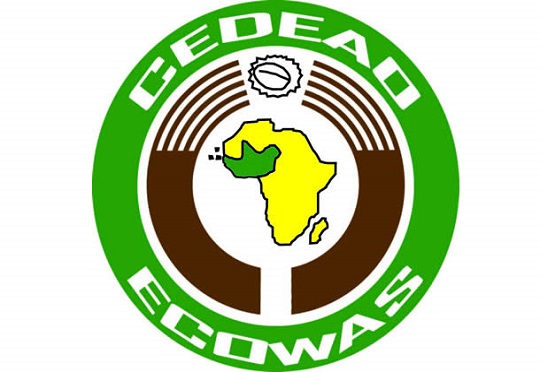[ad_1]
The Economic Community of West African States (ECOWAS), which celebrates its 50th anniversary today, came into being on May 28, 1975, when 15 heads of state of the sub-region signed the ECOWAS treaty in Lagos, Nigeria, with a broad objective of achieving regional economic and political integration among the respective states.
The driving force behind the establishment of the regional body were Nigeria’s Head of State, General Yakubu Gowon and the President of Togo, General Gnassingbe Eyadema, who together worked tirelessly to sell the idea and eventually convince the other Heads of State of the sub-region to sign off on the glaring need for a regional institution that will drive the objective of economic and political cooperation among the states in order to spur region wide economic and social development.
At the time of its formation, many thought the objectives of ECOWAS as set out in its protocols were a tall order as there were relatively little in terms of trade and economic exchanges amongst the various states. These differences were even more pronounced between the Anglophone and French-speaking countries, as both groups preferred to trade with their former colonial masters than within their sub-regional counterparts. A clear example of this was the severe constraints in movement and communication between the various countries which did much to impede the free flow of goods and services in the region.
SPONSOR AD
Today, 50 years later, against the background of the formidable odds it faced at its establishment and all along the way, there is a mixed verdict on the regional body’s performance vis-à-vis its stated objectives.
ECOWAS can be proud that its protocol on free movement within member states has been quite successful. Citizens of member states can now move freely and stay for 90 days at first instance without visa requirements. This has helped exponentially the movement of goods, services and of people, leading to increased trade and commerce among the states of the sub-region.
The fact that ECOWAS also serves as a forum for Heads of State of member countries to discuss issues of region-wide interest has also fostered a sense of togetherness in the sub-region. As a regional body, ECOWAS has drawn strength from the willingness by member states to adopt a shared focus on some of the vexing issues that have affected the region individually and collectively.
On this score, it is to the credit of ECOWAS that the body had worked assiduously in some notable instances in tackling insurgency and subversive activities of rebel groups in Liberia and Sierra Leone through the ECOWAS Monitoring Group (ECOMOG) initiative. This flexible peacekeeping and peace enforcement intervention with the cooperation and contribution of member states helped restore peace and normalcy in these two states which drew commendation from across the world.
ECOWAS had also acted in the particular cases of Gambia and Guinea-Bissau to restore civil democratic order in those countries in the face of threats to truncate outcome of elections; first by the sitting government of Yahya Jammeh in Gambia who attempted to deny the winner of the elections Adama Barrow in the country; and coup attempts against the democratic government in Guinea-Bissau by elements of the military.
It must, however, be stated that thus far ECOWAS remains far from achieving some of the most critical objectives it has set for itself. The goal of monetary union, which would lead to the adoption of a single currency, has remained elusive. Adoption of a common currency would have greatly boosted trade and economic relations within the sub-region. Some member states, especially the Francophone countries, are loath to relinquish the CFA currency, which should have paved the way for the introduction of the proposed ECO which for the benefit of regional trade and commerce.
Again, despite successes recorded in restoring democracy in Gambia and Guinea-Bissau, ECOWAS has, however, failed to roll back the tidal wave of military coups in some of the member countries namely Guinea, Mali, Burkina Faso and Niger. Observers believed this was all down to the approach adopted by ECOWAS in emphasising military intervention with the military juntas of those states rather than constructive dialogue to bring about the desired goal of restoring civil democratic order. This approach has invariably hardened the resolve of Mali, Burkina Faso, and Niger, leading to their withdrawal from ECOWAS and the establishment of the Association of Sahel States (AEL) as a counter to ECOWAS.
Showing concern at this development, General Yakubu Gowon, who now stands as the only remaining founding father of ECOWAS, stated that the exit of the three states could constitute an existential blow to the regional body. He therefore urged for continued dialogue for their return to the ECOWAS fold. “If what it takes is to add another “S” to become ECOWASS-Economic Community of West African States and Sahel-then so be it.”
Gowon’s call is certainly germane considering that the sub-region is grappling with ongoing instability, insecurity and cross-border crime perpetrated by non-state actors.
Going forward, as a regional body ECOWAS needs to stand up and be counted in view of the myriad challenges of insecurity, global economic and political changes, which require greater commitment by member states to respond accordingly.
Do you want to share a story with us? Do you want to advertise with us? Do you need publicity for a product, service, or event? Contact us on WhatsApp +2348183319097 Email: platformtimes@gmail.com
We are committed to impactful investigative journalism for human interest and social justice. Your donation will help us tell more stories. Kindly donate any amount HERE




